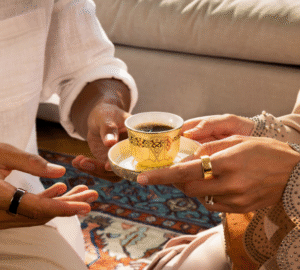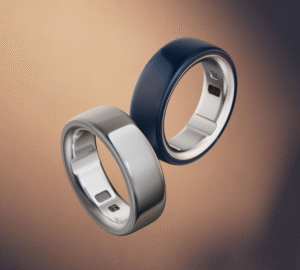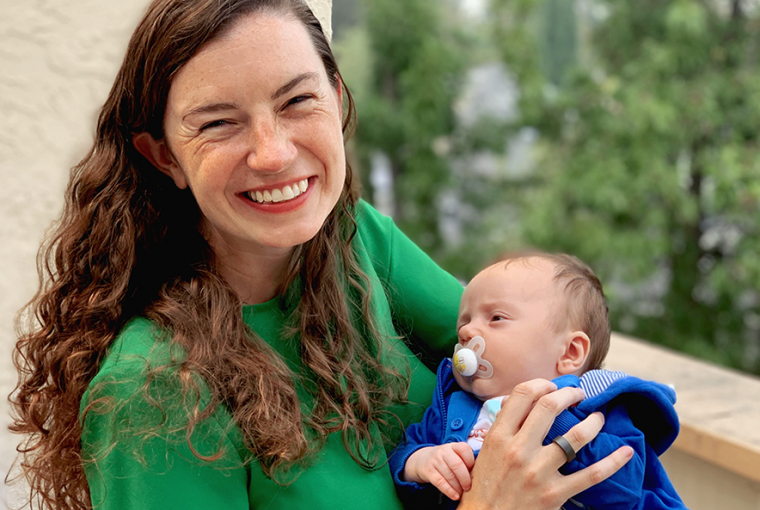Who: Kathleen, 35, Director of Program Management at Zenefits
Helpful Oura insight: By tracking her pregnancy on Oura, it helped inform her habits so she could get better sleep. For instance, she discovered that staying in bed for longer per night allowed her to recoup fragmented REM sleep caused by frequent bathroom breaks.
What led you to Oura?
I had been using Oura for over a year before I got pregnant, but my relationship with Oura changed when I began my pregnancy journey.
I was 34, and at 35 is this stressful threshold where the medical community starts calling your pregnancy “geriatric.” It hangs over your head when you’re a woman in her 30s. I decided to use Oura to monitor my pregnancy and combat some of that anxiety as I tracked my health, controlling and monitoring the things within my power to control. My body doesn’t need to be a black box.
I’m definitely more of an anxious person who is a big believer in using tools. But there are so many devices that can add to your anxiety during pregnancy, like at-home sonography machines to wearable devices for your baby. They can give you all sorts of health information, but they can also give you false alarms. You have to know yourself really well to know what the right amount of information or the right kinds of tools are for you.
Anything I had that would tell me everything was okay was very helpful. Oura helped me with that. Consulting the Oura App every morning helped me focus on eating healthy, staying hydrated, and practicing sleep hygiene. I could compare my intuition alongside some more concrete data — the best of both worlds for me.
| Member Tip: Pregnant Oura members can now track their pregnancy on the Oura App, with Pregnancy Insights. Follow your gestational age and get access to educational resources. |
What patterns did you see in your Oura data during your pregnancy?
I noticed an increase in resting heart rate from conception (September) to delivery (June 11). It can seem a little alarming if you’re spot-checking and googling heart rate ranges because of preeclampsia, but I knew my body and was able to track that this increase was unfolding over time and thus expected and normal for me.
I experienced a big temperature dip around ovulation. After that, my temperature data trended up in Oura for at least a week before I tested positive. Throughout pregnancy, I kept monitoring my temperature to check for significant changes. As a first-time “geriatric” pregnancy, I was also watching for any signals that I should take it easy or be concerned about myself or the baby.
I used Oura to help me figure out how I was sleeping, and sleep is particularly important during pregnancy. I’d first see how much sleep I got, was it high-quality sleep, did I get enough deep sleep, was I tossing and turning, etc. It informed my napping habits — if I slept badly, I’d try and take a nap during the day. It helped me create better sleeping habits.
It was crazy how much more effort it took to accomplish my pre-pregnancy sleep quality. I was waking up during the night to use the bathroom, which ruined my REM sleep. But I figured out that if I spent more total time in bed, I was able to recoup that lost REM sleep. Throughout the day, I had to dedicate a lot more time to planning for sleep, tinkering with hydration and food, and stretching, yoga, and caring for my body.
What tips would you give to other women during pregnancy?
- Be forgiving: The first piece of advice everyone gives you is to talk to yourself the way your best friend would talk to you. You have to change your internal monologue to be more forgiving, kind, and generous. If you have a terrible night of sleep, eat poorly, or lose it one day emotionally, you need to forgive yourself and not dwell. Your best friend would brush it off.
- Embrace the transition: I tend to think of people who track this kind of data as people who like being in control and want to optimize things a certain way. But it’s good to realize that your data is changing because your life is changing, and it isn’t easy! Your scores going down is an accurate reflection of your life’s trade-offs and doesn’t mean forever.
- Take advantage of help: People offer to help, and you need to say yes to every offer. It can feel like your life is a fixed-size pie you have to slice and distribute, so there isn’t enough time for you, your partner, and your baby. Accepting help expands that pie and buys you time to care for yourself and remember that you’re a person with needs too.
- Find a support group: If you haven’t joined a support group for moms, DO IT. That is one of the biggest things that I didn’t expect to like, but I loved it. It’s reassuring to know I’m not the only one struggling.
What’s Your Oura Story?
Everyone’s story is unique. Share yours with us here.











